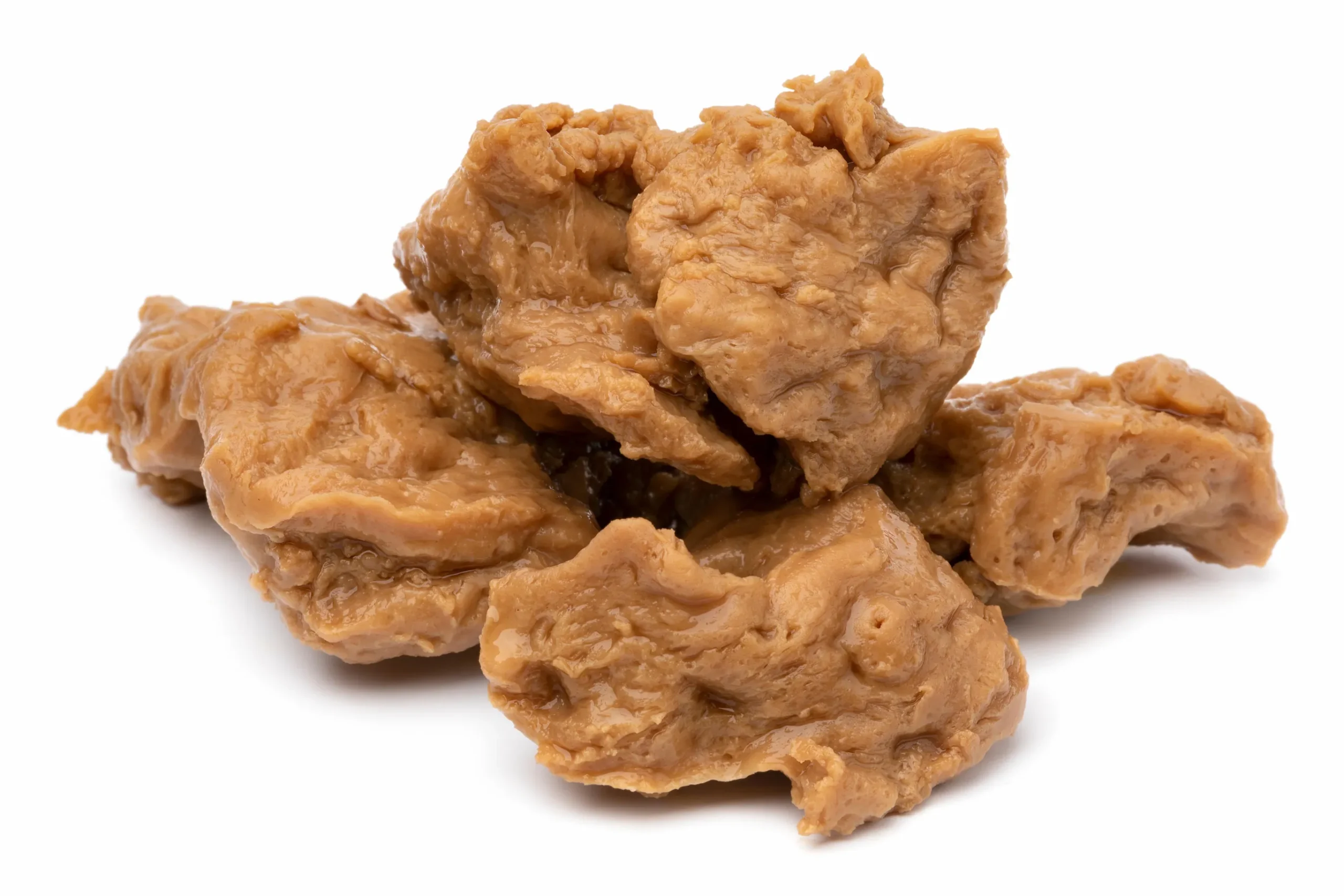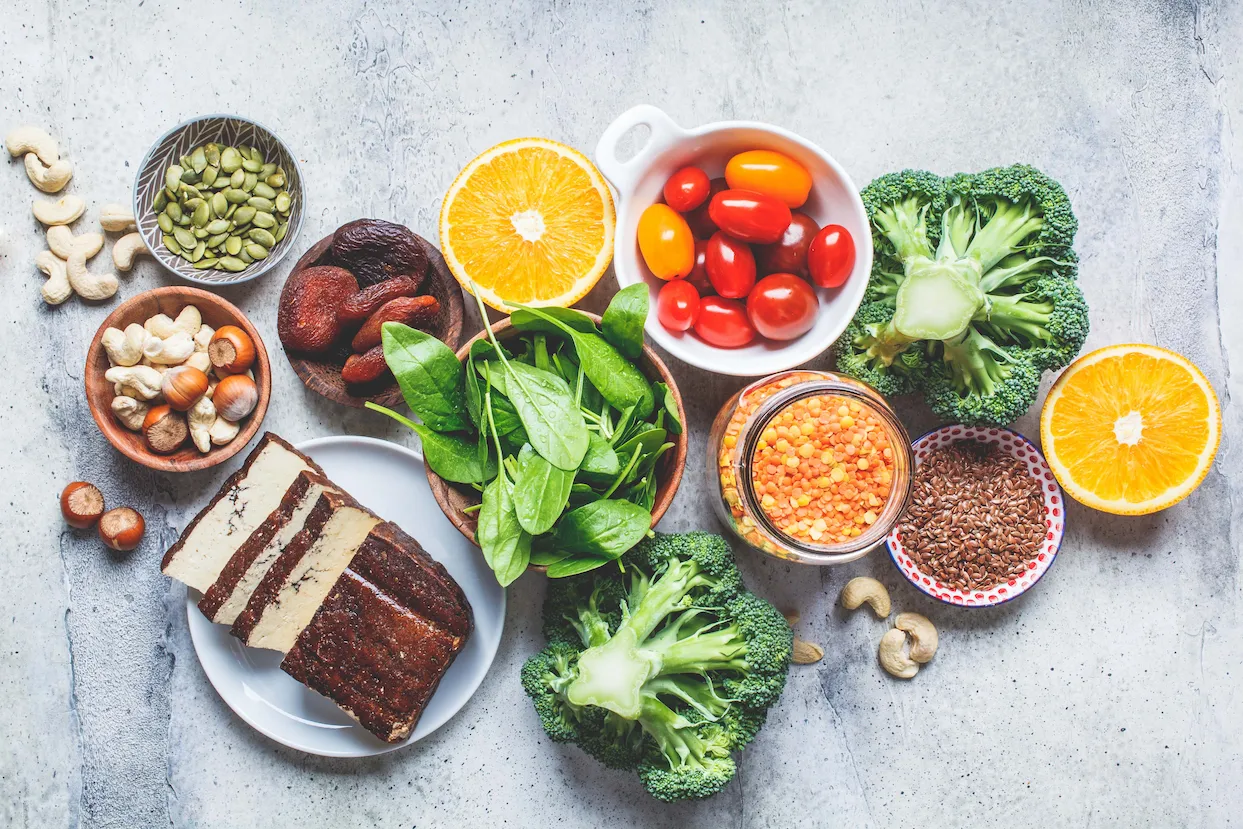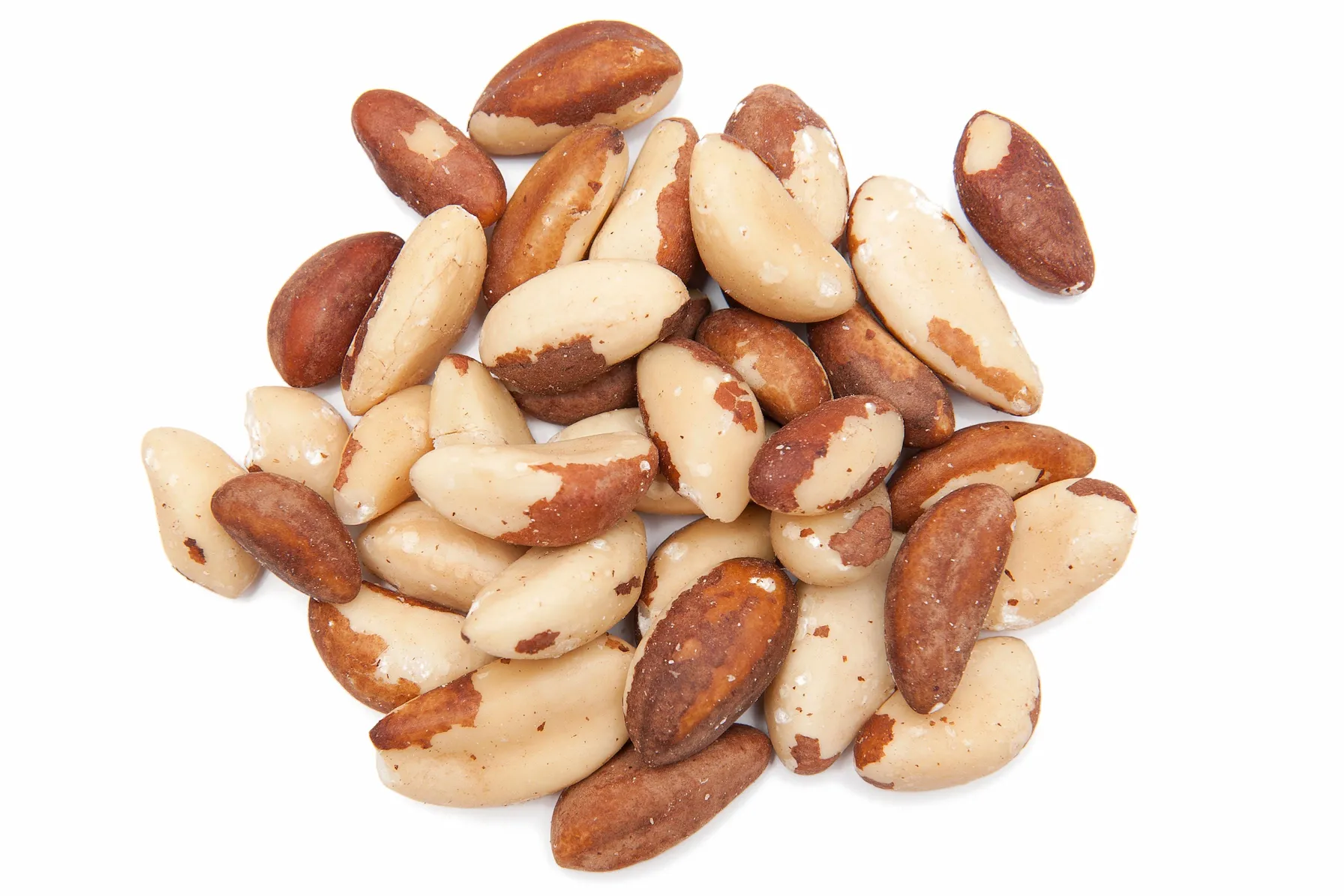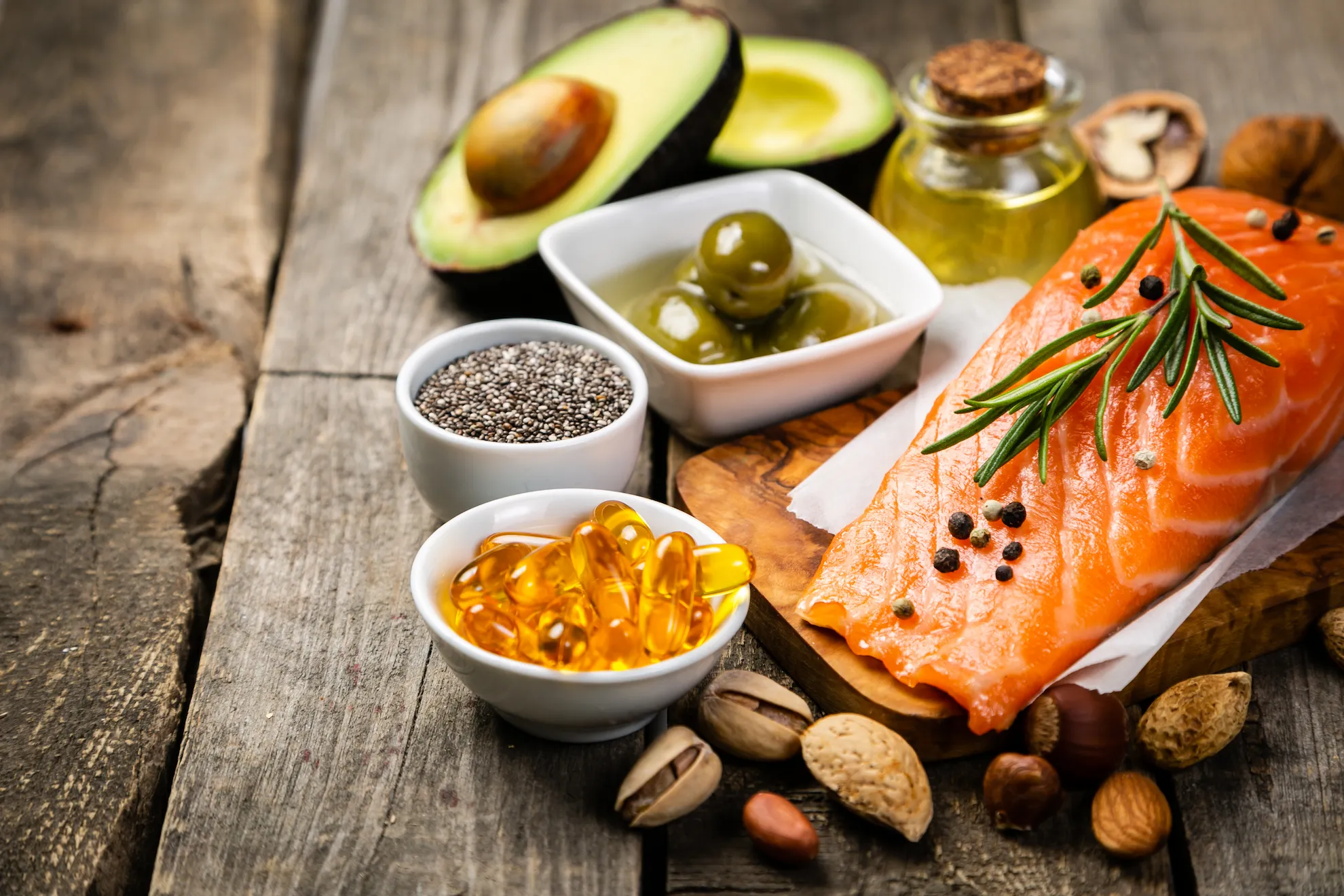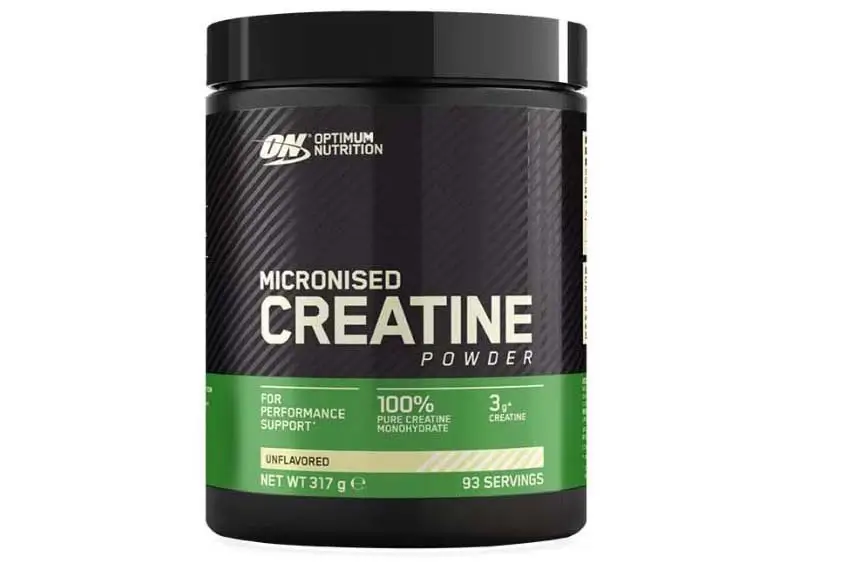Vegetarianism in sport
In recent years, diets limiting or excluding the consumption of meat, fish and animal-derived products have been attracting more and more interest. With a growing interest in vegetarian diets, there is also a growing group of athletes who notice their potential benefits and consider vegetarianism as a nutrition model for themselves. If you are one of them or you use a meatless diet, this article is just for you! Read it to learn what you should pay attention to while composing your vegetarian meals, and what errors you should avoid in order not to diminish your exercise capacity. A well-balanced vegetarian diet may be healthy and safe, allowing productive workouts and fast post-exercise recovery; however, its use in practice may prove not to be easy. Most certainly, it will require solid knowledge and deep involvement on your part, so that you could ensure supply of all essential nutrients!
Authors: Klaudia Buczek, MSc Eng., Karolina Ferdyn, BSc., and Michał Miśta, MSc Pharm.
Contents
- What are vegetarian diets?
- Is a plant-based diet safe for an athlete?
- Danger 1 – Complete protein deficiency
- Danger 2 – Vitamin deficiency
- Danger 3 – Microelement deficiency
- Danger 4 – Development of anaemia
- Danger 5 – No source of polyunsaturated fatty acids, EPA and DHA
- Danger 6 – No source of creatine
- Danger 7 – Low energy supply and menstrual disorders
- Danger 8 – Gastrointestinal disorders
- Organisational problems
- Conclusion
- Bibliography
What are vegetarian diets?
Vegetarian diets involve deliberate limitation or total elimination of meat or animal-derived products (such as dairy, eggs, or honey) from the menu. Before we proceed to discuss potential dangers of using vegetarian diets, you must know that there are several varieties of them, depending on the elimination of specific animal-derived product. Consequently, the use of particular types of vegetarian diets may be associated with a risk of deficiency of particular nutrients.
The table below presents a division of these diets into two major categories: pseudo-vegetarian diets (limiting meat) and vegetarian diets (eliminating meat) with a more detailed classification, specifying the products eliminated and indicating potential deficiencies.
| Classification | Exclusions | Possible deficiencies | |
| Pseudo-vegetarian diets | Flexitarianism | Limited amount of meat | Depending on the amount of consumed meat and fish, possible vitamin B12 and iron deficiency |
| Pescetarianism | Elimination of meat, with no limitation of fish consumption | Depending on the amount of consumed fish, possible vitamin B12 and iron deficiency | |
| Vegetarian diets | Lacto-ovo vegetarianism | Elimination of meat and fish | Vitamin B12, omega-3 acids (EPA and DHA), iron, creatine |
| Lacto-vegetarianism | Elimination of meat, fish and eggs | Vitamin B12, omega-3 acids (EPA and DHA), iron, creatine | |
| Ovo-vegetarianism | Elimination of meat, fish and dairy | Vitamin B12, calcium, omega-3 acids (EPA and DHA), iron, creatine | |
| Veganism | Elimination of all animal-derived products, including meat, fish, eggs and dairy | Protein, vitamins B2 and B12, calcium, omega-3 acids (EPA and DHA), iron, creatine | |
Table 1. Types of vegetarian diets, from the least to the most restrictive, indicating exclusions and potential nutritional deficiencies. On each of the above-mentioned diets, you may also be exposed to vitamin D3, iodine and selenium deficiencies – nutrients that are deficient in the general population.
Is a plant-based diet safe for an athlete?
It is important to emphasize that current state knowledge confirms that diets limiting or eliminating animal-derived products are possible to balance and safe for use at any stage of life. However, as an athlete using this nutritional model, you must pay particular attention to adequate supply of nutrients in order not to diminish your capacity and, consequently, your sports results and achievements. The key to success is appropriate meal planning and supplementation, preferably in cooperation with a sports dietician. You must also remember that using a nutrition model based on a vegetarian or vegan diet, you may encounter numerous difficulties related to adequate supply of energy or particular nutrients. For this reason, in some instances, despite your best efforts, the implementation of a vegetarian diet, and particularly vegan diet, may turn out to be difficult, and sometimes almost impossible.
Danger 1 – Complete protein deficiency
In an athlete’s diet, protein plays a crucial role. It is essential not only for the construction and recovery of muscles and connective tissue (constituting e.g. joints, tendons and ligaments) after a workout, but also takes part in metabolic and regulatory processes. Proteins also play a crucial role in the function of the immune system, enabling an effective immune response of the body to various pathogens and other foreign agents. Unfortunately, if you use an elimination diet, intake of a good quality protein in an adequate amount may be difficult. The biggest problems that you may encounter when deciding on sources of plant protein are: ensuring adequate total supply of protein, its amino acid composition and digestibility. Let us have a closer look at them.
Protein supply
You do realise that meat is not the only source of protein in human diet, and, when choosing such products as eggs, dairy, legumes (bean, pea, broad bean, soybean) and their preparations, nuts or cereal seeds, you are able to supply and adequate amount of protein. In spite of this, however, certain athletes may have a problem with intake of an adequate amount of protein while on a vegetarian, and especially vegan, diet. This will particularly refer to athletes practising strength sports with a protein demand exceeding 2 g/kg body weight/day, as well as to tall athletes, e.g. basketball players, volleyball players and/or those with a substantial body weight, often exceeding 100 kg. It is easy to calculate that their daily protein demandcan exceed 200g/day, which amounts to 40-50 g protein per meal.
Amino acid composition
Proteins are composed of a set of 20 building units called amino acids. Complete protein is such protein that contains all essential amino acids, which additionally occur in specific proportions. Hen’s egg protein, called ovalbumin, is considered a protein standard. It contains all non-essential amino acids, which may be synthesized in the body, and essential amino acids, i.e. such that cannot be produced by the body itself and must be supplied with food. In the table below, you can find a list of all 20 protein amino acids, with a division into essential, conditionally essential (see description) and non-essential amino acids, with their common three-letter abbreviations.
| Lp. | Essential Amino Acids (EAA) | Lp. | Conditionally Essential Amino Acids (CEAA) | Lp. | Non-Essential Amino Acids (NEAA) |
| 1 | Phenylalanine, Phe | 9 | Arginine Arg | 17 | Alanine, Ala |
| 2 | Leucine, Leu,BCAA | 10 | Cysteine, Cys | 18 | Asparagine, Asn |
| 3 | Lysine, Lys | 11 | Glycine, Gly | 19 | Aspartic Acid, Asp |
| 4 | Isoleucine, Ile,BCAA | 12 | Glutamine, Gln | 20 | Glutamic Acid, Glu |
| 5 | Methionine, Met | 13 | Histidine His | ||
| 6 | Threonine, Thr | 14 | Proline, Pro | ||
| 7 | Tryptophan, Trp | 15 | Serine, Ser | ||
| 8 | Valine, Val,BCAA | 16 | Tyrosine, Tyr | ||
Table 2. There are 20 protein amino acids (included in proteins) which may be divided into essential, i.e. such that must be supplied with food, and non-essential, which can be synthesized by the body itself in the event of their insufficient supply with food. These terms refer to the needs of the body under specific conditions. That is why, some amino acids are classified as semi-essential [1], which means that the amount of these amino acids synthesized by the body is sufficient for a healthy, adult person, but not for a developing body of a child or teenager [2], or in the case of diseases, injuries, persons building their muscle mass or in the case of an intense physical effort [3, 4, 5].
In contrast to complete proteins, plant proteins are often called incomplete proteins or deficient proteins. This means that they do not contain all essential amino acids in proportions sufficient to meet the needs of the body. They often lack one or more essential amino acids which the body is not able to synthesize and which must be supplied with food. Such amino acids, whose amount is too low in relation to the standard protein, are called limiting amino acids. What is important is the fact that if a given protein contains even one limiting amino acid, such protein may not be fully used by the body.
Although a vegetarian diet, due to consumption of eggs and dairy containing complete animal protein of good digestibility does not normally pose a problem in providing an adequate amino acid composition, in the case of a vegan diet, the level of difficulty in composing a balanced meal is highly increased. One of the problems is that a vegan diet supplies an inadequate amount of leucine, one of three branched-chain amino acids, which represents a limiting amino acid. Leucine plays a crucial role in athletes, participating in muscle protein synthesis (MPS). Ensuring adequate leucine supply is especially important in the period of building muscle mass, e.g. in bodybuilders, and for muscle recovery, and it particularly concerns athletes with a high number and volume of workouts [1].
It is also necessary to mention here that deficiency of even one amino acid in food may also result in a negative nitrogen balance, when more bodily protein is degraded than biosynthesized. As a result, your body excretes more nitrogen than it receives with food. This state, if maintained for a longer period of time, may lead to a series of negative consequences to your body, especially loss of muscle mass, decrease in physical performance, higher risk of injury, reduced immunity and longer recovery after exercise.
Digestibility
Another difficulty is the fact that plant protein is characterised by lower digestibility as compared to animal sources of protein. This is caused by the presence in plants of dietary fibre and anti-nutrients, i.e. compounds that hinder or significantly restrict the use of nutrientsin food – in this case, of proteins. Examples include inhibitors of digestive enzymes such as trypsin and chymotrypsin contained in wheat, legumes and in potatoes.
How can I meet the need of protein being a vegetarian?
So, how to address problems related to the use of plant sources of protein? Firstly, to ensure an adequate level of protein supply, supplementation with an appropriate preparation may turn out to be necessary. If you are a vegetarian, you may reach for protein powder supplements based on milk protein, especially whey protein concentrate (WPC), whey protein isolate (WPI) and casein (Ca, C), or to supplements containing pure hen’s egg protein in the form of powder. In the case of a plant-based diet, you should think about products containing vegan protein, such as soy protein or plant protein mixtures, e.g. pea protein and rice protein. They may also include hemp protein, buckwheat protein, mustard protein or protein derived from chia seeds.
Photo 1. Protein supplements based on the mixture of pea and rice protein are an alternative to traditional animal-derived protein supplements, such as whey protein or casein.
Secondly, in order to achieve an adequate amino acid profile, try to combine products which complement one another with regard to a missing amino acid, e.g. cereal products in which limiting amino acids are lysine and threonine can be combined with legumes, such as beans, lentils, chickpeas, for which a limiting amino acid can be methionine. Thus, both groups of products will be complementary products, which means that when you combine them, you can supplement missing amino acids. You might also get interested in soybean and its products, e.g. soy chops, soy granules, tofu (popular ingredient used in the Asian cuisine with a consistency similar to quark cheese), tempeh (product originating from Indonesia and produced from fermented soybean and other legumes), which are one of few plant sources of protein containing a complete amino acid profile. A popular ingredient in the vegan and vegetarian cuisine is also seitan, a product obtained by removing starch from wheat flour, leaving an elastic mass consisting of gluten protein (gluten). Due to its neutral taste, allowing capturing various flavours and spices, and a characteristic, meat-like consistency, it is a good meat substitute. For subjects suffering from coeliac disease who want to use a vegan diet, a valuable source of plant proteins is also quinoa (pronounced /kiːnwɑː/), whose seeds contain all essential amino acids, at the same time being naturally gluten-free. Thirdly, appropriate methods of plant-based product processing, such as: fermentation, shooting, wetting, boiling, can increase digestibility of proteins contained therein [6].
Photo 2. Seitan, i.e. prepared wheat gluten is a common meat supplement in a vegetarian and vegan cuisine.
Danger 2 – Vitamin deficiency
Vitamin D3 deficiency
Being on a vegetarian or vegan diet, as well as when you use a conventional diet, you are not able to cover your need for vitamin D3 with food because a key role in obtaining this vitamin is played by skin synthesis. Remember to expose your body to sunlight for at least 15 minutes a day in the period between April and October from 10:00 to 15:00. In other months or if exposure to sun is not possible, be sure to remember about vitamin D3 supplementation. You can read about recommendations for the supplementation of this vitamin in a separate article on our website.
Vitamin B2 (riboflavin) deficiency
The main food source of riboflavin (vitamin B2) is meat, but it can also be found in large quantities in dairy products and eggs. If you eliminate these products from your diet, you must ensure that your meals include wholemeal cereal products, such as pasta, bread, millet groats, or buckwheat groats, and also legumes, e.g. beans, or soybeans, and dark green leafy vegetables, such as e.g. kale. It is also important that your vegetarian diet contain significant amounts of unprocessed products, since they are the ones with their higher content. You must also remember that vitamin B2 is sensitive to light, so plant products may lose it while being stored under inappropriate conditions.
Vitamin B12 (cobalamin) deficiency
The only food source of vitamin B12 are animal products: meat (especially beef liver, kidneys), fish (especially pike), milk products and eggs. Unfortunately, no plant product is a source of vitamin B12, and its small amount in plants is usually caused by contamination with bacteria, e.g. those developed in the process of fermentation. Therefore, if you limit meat in your diet using pseudo-vegetarian diets, you should consider supplementation of this vitamin. In the case of meatless diets, Vitamin B12 supplementation is absolutely necessary! Remember that vitamin B12 deficiency contributes not only to reducing exercise capacity, but also to the development of serious diseases, such as megaloblastic anaemia or nerve damage.
Danger 3 – Microelement deficiency
Iron deficiency
Perhaps you know that iron can be present in food in two forms: haem iron (in meat products) and non-haem iron (in other products). Non-haem iron has a much lower bioavailability – only 5-10% is absorbed from the gastrointestinal tract, which translates into much lower possibilities of its use by the body. As a result, a vegetarian diet, especially a vegan diet, increases a risk of iron deficiency, which in turn may lead to body weakness, development of anaemia and reduced exercise performance with deterioration of recovery. The problem is of particular concern for menstruating women, as well as athletes practising endurance sports due to their increased demand for this microelement. When composing your meals, you must also pay attention to the fact that plant sources of iron additionally contain a lot of anti-nutrients which make its absorption from food difficult. These are for example phytates contained in legumes, polyphenols present in coffee or tea, calcium contained in milk or cheese, or a high amount of dietary fibre. According to some sources, because of low bioavailability and presence of compounds reducing iron absorption from plant products, persons on vegetarian diets should increase iron supply by even 180% in relation to the demand of persons on a conventional diet.
Photo 3. Pumpkin seeds, spinach leaves, broccoli, nuts, or tofu, are a good source of iron. But remember that it is non-haem iron, whose bioavailability is relatively low. A good idea would be to combine them with products rich in vitamin C, such as citrus fruit, improving its absorption.
Iodine deficiency
Iodine is one of the most important microelements for normal body function, essential e.g. for the production of thyroid hormones. The main symptoms of iodine deficiency include hypothyroidism, which can limit exercise performance, as well as reduced ability to learn, memorise and associate, and a decreased intelligence quotient (IQ). The European continent has the highest percentage of people consuming too little iodine (about 60%), and everyday food of the Europeans does not provide adequate intake of this element.
Unfortunately, persons on vegetarian diets, especially, a vegan diet, are more exposed to iodine deficiency than those using a conventional diet [1, 7]. This happens not only due to the fact that most plant products contain little iodine. An additional difficulty is that they contain so called goitrogenic substances, which may inhibit iodine absorption or block the production of thyroid hormones. Products rich in goitrogenic substances include cruciferous vegetables (broccoli, cabbage, cauliflower, Brussels sprouts, turnip, cress, kale or radish), legumes (beans, peas, lentils), soybean, sweet potatoes or flax seed. These products may be problematic for persons with existing iodine deficiency or thyroid dysfunction. However, if you regularly monitor your state of health, e.g. by having check-ups of blood thyroid hormones (TSH, T3, T4) and you use a balanced diet, you do not have to worry about their consumption.
A naturals source of iodine is marine fish (e.g. cod, salmon, mackerel and tuna), seafood (e.g. shrimps, mussels, oysters and crabs) and to a lesser degree milk products, especially if animals have received feed supplemented with iodine. A good source of iodine for persons using plant-based diets are popular in Asian cuisine seaweeds, such as wakame, nori (sold as “algae for sushi”), kombu (kelp) or spirulina. You can buy these products in shops with health food, Asian shops or in shops with oriental food. Due to limited availability of sources of iodine for vegetarians, especially vegans, you should also consider the use of iodised salt (containing an enriching additive, e.g. potassium iodine) for cooking and seasoning food, and for preparing preserves. And remember that many types of salt, including popular Himalayan salt, considered a natural product not subject to chemical treatment and without artificial additives, is often not iodised, and its natural content of iodine is very low. This also refers to many types of popular Kłodawa salt, as well as to salt used for industrial purposes. That is why, the best choice for you would be to use traditional rock or evaporated iodised cooking salt.
Selenium deficiency
Selenium is a trace element playing an important role in the human body. It is essential for normal function of thyroid, (participates in the production of thyroid hormones), immune system, it affects muscle efficiency and counteracts oxidative stress. Thus, its deficiency will have a negative effect on exercise capacity. Unfortunately, similarly to iodine, it is a deficient element for people living in Europe, which is caused by its low content in soil. Selenium may be accumulated in muscles, liver, kidneys and other animal tissues, which leads to its cumulation in animal-derived products, such as eggs or milk. Therefore, these products may be a valuable source of selenium. For persons on meatless diets, one of the richest sources of selenium are Brazil nuts. Remember, however, that the content of this microelement will differ depending on cultivation conditions, soil composition and region of origin. If you use a vegetarian diet, especially a vegan diet, you may find it difficult to meet the required selenium supply. In such a situation, it is advisable to have a blood selenium test, consult a sports dietician and consider supplementation of this element.
Photo 4. Brazil nuts are one of the richest sources of selenium for persons on a vegetarian or vegan diet
Reduced calcium supply
Due to the elimination of the richest source of calcium, i.e. dairy, you should take special care to supply this microelement when on a vegan diet. Low calcium supply can cause muscle weakness, development of osteoporosis, and increased risk of fractures. It is advisable to use dairy substitutes, such as plant drinks and yoghurts, tofu, which are fortified with calcium. Calcium absorption from such products is comparable to absorption of cow’s milk. It should also be mentioned that water, especially highly-mineralised water, can also be a valuable source of this element.
Danger 4 – Development of anaemia
You might have met with a conviction that persons on a vegetarian diet are weak, pale and close to fainting. Such a picture may refer to somebody who, due to lack of a planned diet and dietary errors, have developed anaemia.
Anaemia is a condition when there is insufficient amount of haemoglobin in the body to efficiently transport oxygen to tissues. That is why, persons struggling with anaemia are often weak, have a slower recovery rate, and their workout capacity is much reduced. Anaemia resulting from iron deficiency is called microcytic anaemia and is characterised by a lower number red blood cells (erythrocytes) and their smaller diameter. But if the underlying cause of anaemia is vitamin B12 and B9 (folic acid) deficiency, it is called megaloblastic anaemia. Its underlying cause is abnormal DNA synthesis in bone marrow stem cells, which leads to the production of red blood cells with atypical, enlarged (megaloblastic) cell nuclei.
If your diet is varied and rich in leafy vegetables, cereals and legumes, you do not have to worry about vitamin B9 deficiency, since you are sure to supply its sufficient amount to your body. It is different, however, with regard to the other two elements. Using a vegetarian diet, it is absolutely necessary to supplement vitamin B12, since no plant product is able to supply it. You must also ensure adequate supply and absorption of iron in your diet. Menstruating women, endurance athletes and injured persons should pay special attention to the amount of iron taken.
Danger 5 – No source of polyunsaturated fatty acids, EPA and DHA
Polyunsaturated fatty acids, EPA and DHA, belonging to omega-3 acid family, are a group of nutrients essential for health, which a human body cannot produce in sufficient amounts by itself. Thus, they must be supplied with food. Popular plant products, such as avocado, olives or nuts include many examples providing healthy fats, but none of them is a source of these precious nutrients. One of few plant sources of polyunsaturated omega-3 acids: eicosapentaenoic acid (EPA) and docosahexaenoic acid (DHA) are seaweeds. They are a primary source of these acids for fish and other sea creatures. You can also find supplements based on them on the market, e.g. microalgal oil EPA and DHA facilitate normal function of the cardiovascular system, they can improve cognitive function and exercise performance, have an anti-inflammatory effect and can help in recovery. The main food source of EPA and DHA are fatty marine fish and fish oil, so when you decide on a diet which eliminates these products, you should consider their supplementation[8].
Photo 5. Popular plant products, such as avocado, olives or nuts include many examples providing healthy fats, but none of them is a source of polyunsaturated omega -3 acids: EPA and DHA. Their best source are fatty marine fish and fish oil. When you decide to eliminate these products, it is worth considering their supplementation.
Danger 6 – No source of creatine
Creatine is a natural nonprotein amino acid, which is found primarily in muscles. A human body produces about 1 g of creatine daily, which amounts to 50% of demand. The rest should be supplied with food and/or in the form of adequately selected supplementation. Remember that the only natural source of creatine in a diet are meat products and fish; therefore, if you limit or eliminate them, supplementation is necessary. Literature data show that persons with a low level of creatine in the muscles, including persons on meatless diets, may benefit from supplementation more than those on a conventional diet [9]. Creatine is a well-studied substance, showing an ergogenic effect, i.e. improving exercise performance. An especially positive effect of creatine may be observed by athletes whose exercise is characterised by high intensity and short duration, or repeated intervals (intermittence), e.g. strength sports, football or sprints.
Photo 6. Creatine monohydrate is one of the best studied supplements with an ergogenic effect (improving physical performance, capacity or ability to exercise). If you limit or eliminate meat products and fish in your diet, creatine supplementation will be a necessity.
Danger 7 – Low energy supply and menstrual disorders
Some athletes who use a conventional diet, especially those practising endurance disciplines, may find it difficult to meet their caloric requirement related to very high energy expenditures during workouts. In the case of vegetarians, supplying an adequate amount of energy is more difficult, since plant products are characterised by lower energy density. A vegetarian diet is also based on such products as e.g. legumes, which are characterised by high satiety. Using this nutritional model you may sooner have a feeling of satiety and your appetite may be reduced, despite an inadequate caloric intake from the diet in relation to demand. This may result in weight loss, which is not always a desired effect. Low energy density of foods combined with an early occurrence of the feeling of satiety make it difficult to meet the energy requirement, possibly leading to a chronic caloric deficit. In the case of women, an inadequate energy supply combined with heavy workouts may lead to menstrual disorders, or even to lack of menstruation. If you have too few calories, your body receives a signal to enter a state of energy saving. In this situation, the body does not want to allow pregnancy, since its occurrence would require high energy expenditures. In order to meet the energy requirement in physically active persons, it may be necessary to include energetically dense products in their diet, such as dried fruit, jams, oils, pips, fruit juices or refined cereal products.
Danger 8 – Gastrointestinal disorders
A plant-based diet may increase a risk of gastrointestinal problems, such as diarrhoea, constipation, bloating or abdominal pain. This is related to a high supply of dietary fibre, which may reach 100 g/day, and of products rich in so-called FODMAP, i.e. Fermentable Oligosaccharides, Disaccharides, Monosaccharides And Polyols, e.g. apples, legumes, broccoli, cauliflower, onion, garlic. This issue is especially problematic in endurance athletes, who are exposed to the occurrence of exercise-induced gastrointestinal disorders reducing their performance and workout comfort. They are caused by blood flood changes, since during physical activity blood is primarily supplied to sites working the most (which is related to a reduced blood flow in the gastrointestinal tract), mechanical impulses, like shaking e.g. while jogging, or by the position adopted, e.g. while cycling, which affect the gastrointestinal function. If you observe gastric problems during a workout, it is important to adequately compose your meals, paying special attention to peri-workout nutrition before a workout and after a workout. Reach for tried products and those you tolerate well. Also pay attention to the form and method of meal treatment. Before a workout, it is a good idea to choose meals in a liquid form, e.g. cocktails. Instead of fried, heavy foods, choose foods boiled in water or steamed.
Organisational problems
Considering the issue of difficulties to be encountered when using a vegetarian diet, we should mention situations when a possibility of preparing your own meals is limited, e.g. on trips, during events or at sports centres. Unfortunately, many places are still not adapted for adequate preparation of meals used in elimination diets. Lack of training of the kitchen staff with regard to appropriate culinary processing, substitutes or macroelement balancing may result in your diet at that time being deficient, little varied, or at best untasty. You must also account for limited availability of substitutes of some animal products, e.g. tofu, tempeh or plant drinks while being away, especially when you go to small towns or abroad. Always try to have an alternative up your sleeve, which will ensure that even in crisis situation you will be able to adequately nourish your body.
Conclusion
When you decide on a vegetarian diet, you may encounter numerous difficulties in meeting your demand for nutrients and energy. However, thanks to higher awareness and adequate planning, you will be able to correctly balance your diet. Current state of knowledge shows a neutral effect of a vegetarian diet, including a vegan diet, on exercise capacity. Evidence that this nutrition model can go hand in hand with sport is provided by a sprinter Morgan Mitchell, tennis player Venus Williams, ultramarathon runner Scott Jurek, or F1 racing driver Lewis Hamilton. These are examples of people who have been eliminating animal-derived products for many years, but it has never been an obstacle in achieving success in sport.
Bibliography
- B. Frączek, J. Krzywański, H. Krzysztofiak Dietetyka sportowa PZWL Wydawnictwo Lekarskie, Warszawa, 2019
- Jeremy M. Berg, Lubert Stryer, John L. Tymoczko, Gregory J. Gatto Biochemia, Wydawnictwo Naukowe PWN, 2018
- Hou Y, Yin Y, Wu G. Dietary essentiality of “nutritionally non-essential amino acids” for animals and humans. Exp Biol Med (Maywood). 2015 Aug;240(8):997-1007. doi: 10.1177/1535370215587913. Epub 2015 Jun 2. PMID: 26041391; PMCID: PMC4935284.
- Posey EA, Bazer FW, Wu G. Amino Acids and Their Metabolites for Improving Human Exercising Performance. Adv Exp Med Biol. 2021;1332:151-166. doi: 10.1007/978-3-030-74180-8_9. PMID: 34251643.
- J. Mizera, K.Mizera Dietetyka sportowa. Co jeść by trenować efektywnie. Galaktyka 2017
- Amatori S, Callarelli C, Gobbi E, Bertuccioli A, Donati Zeppa S, Sisti D, Rocchi MBL, Perroni F. Going Vegan for the Gain: A Cross-Sectional Study of Vegan Diets in Bodybuilders during Different Preparation Phases. Int J Environ Res Public Health. 2023 Mar 15;20(6):5187. doi: 10.3390/ijerph20065187. PMID: 36982094; PMCID: PMC10048841.
- Eveleigh ER, Coneyworth L, Welham SJM. Systematic review and meta-analysis of iodine nutrition in modern vegan and vegetarian diets. Br J Nutr. 2023 Nov 14;130(9):1580-1594. doi: 10.1017/S000711452300051X. Epub 2023 Mar 13. PMID: 36912094; PMCID: PMC10551477.
- Thielecke F, Blannin A. Omega-3 Fatty Acids for Sport Performance-Are They Equally Beneficial for Athletes and Amateurs? A Narrative Review. Nutrients. 2020 Nov 30;12(12):3712. doi: 10.3390/nu12123712. PMID: 33266318; PMCID: PMC7760705.
- Rogerson D. Vegan diets: practical advice for athletes and exercisers. J Int Soc Sports Nutr. 2017 Sep 13;14:36. doi: 10.1186/s12970-017-0192-9. PMID: 28924423; PMCID: PMC5598028.
- A. Bean Żywienie w sporcie Zysk i Spółka Wydawnictwo, Poznań 2019
- M. Jarzynka-Jędrzejewska, E. Sypnik-Pogorzelska Kuchnia wegańska na cztery pory roku Wydawnictwo RM, Warszawa 2023
- Dan Benardot Advanced Sports Nutrition. Fine-tune your food and fluid intake for optimal training and performance. Third Edition.
- Heather Fields, Barbara Ruddy, Mark R. Wallace, Amit Shah, Denise Millstine, Lisa Marks How to Monitor and Advise Vegans to Ensure Adequate Nutrient Intake, Journal of Osteopathic Medicine, Volume 116 Issue 2, 2016
- Aslı Devrim-Lanpir, Lee Hill, Beat Knechtle Efficacy of Popular Diets Applied by Endurance Athletes on Sports Performance: Beneficial or Detrimental? A Narrative Review Nutrients 2021, 13, 491.
- Yi Long, Hua Ye, Jiaming Yang, Xi Tao, Huiyong Xie, Jiahong Zhang, et.al: Effects of a vegetarian diet combined with aerobic exercise on glycemic control, insulin resistance, and body composition: a systematic review and meta-analysis. Eat Weight Disord. 2023 Feb 15;28(1):9

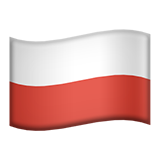 EN (PLN)
EN (PLN) EN (GBP)
EN (GBP) EN (EUR)
EN (EUR)

